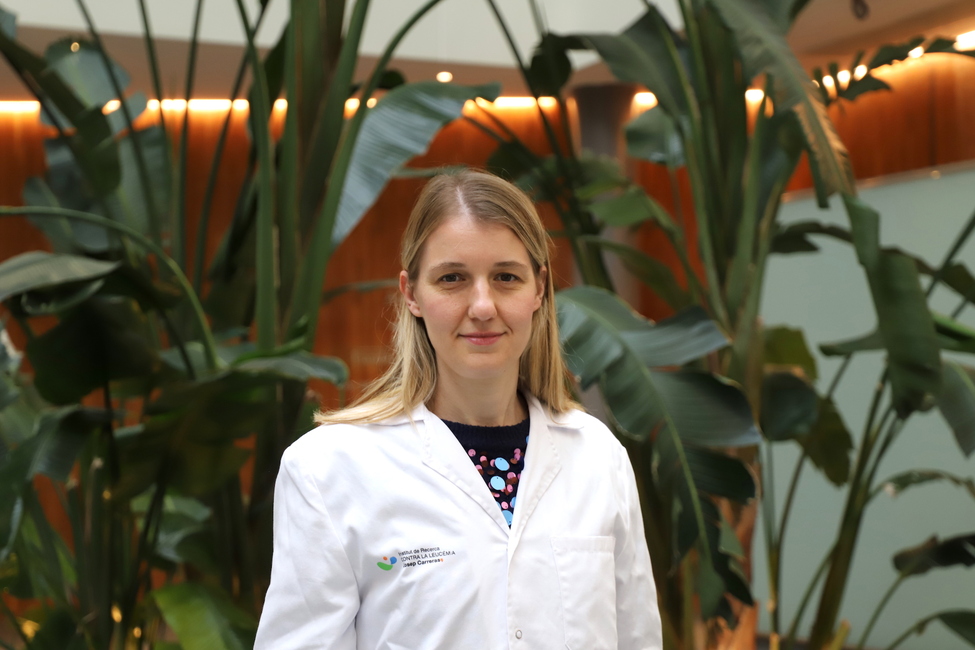Researchers at the Josep Carreras Institute will study a rare T-cell lymphoma thanks to the Leukemia Research Foundation
Dr. Laura Mondragón, “T-cell lymphoma” group leader at the Josep Carreras Leukaemia Research Institute, has been granted a new project to fight against angioimmunoblastic T cell lymphoma (AITL). The project, starting October 1st 2022, is funded by the Leukemia Research Foundation based in Northfield, Illinois (USA) and aims to exploit the latest generation of animal models for AITL, to better understand this type of adult lymphoma and open the door to new therapeutic approaches.

Angioimmunoblastic T-cell lymphoma (AITL) is a deceiving and not too-well understood hematological malignancy. It usually appears in the elders and looks more like an aggressive type of B-cell lymphoma that develops quickly and yields a dismal 35% survival rate at 5 years. However, its ultimate cause is the malfunction of a particular subset of T-cells: the follicular helper T-cells, in charge of the activation and proliferation of B-cells in the lymph nodes.
The lymph nodes are tiny immune centers distributed all over the body that filter the fluid around the tissues, the lymph, capturing bacteria, virus and debris and making sure everything is fine. The most well-known lymph nodes are those in the tonsils, armpits and spleen, but many more exist. There lies our most sophisticated immune machinery: the B and T-lymphocytes.
In a nutshell, T-lymphocytes recognize the presence of a pathogen and finds the right B-lymphocyte that produces antibodies against it. This B-cell will be instructed to multiply itself and produce an army of specific antibody-producing cells until the pathogen is effectively wiped out from the body. The specific type of T-cells promoting this B-cell activation are the follicular helper T-cells (Tfh cells), also in charge of stopping proliferation after the threat is gone.
For some unknown reasons, though, sometimes the Tfh cells fail to stop the overactivation of B-cells, leading to its accumulation in the lymph nodes and the onset of the lymphoma. Understanding this type of cells and the origin of its malfunction is the main objective of the project entitled “New therapeutic approach for treating angioimmunoblastic T cell lymphoma based on the discovery of a new Tfh population”, led by Dr. Laura Mondragón at the Josep Carreras Leukaemia Research Institute and funded by the Leukemia Research Foundation.
The project will further develop previous findings from the Mondragón lab, who found a new kind of Tfh cells showing two different T-cell receptors on its surface. Targeting and eliminating this not previously described Tfh cell supopulation will be the objective of the project as a neat way to stop the progression of the disease.
With the help of a new murine model, Dr. Mondragón and her team, including Marisa Toribio (CBM) and Dr. Miguel Ángel Piris (Jiménez Díaz Foundation) will develop the tools and strategies to test their hypothesis and, eventually, offer new therapeutic options for AITL patients.